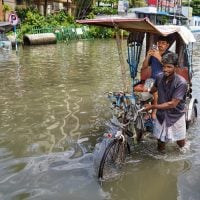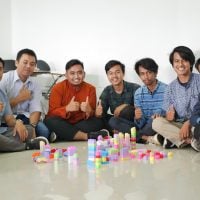Gender-inclusive economic development projects are essential for fostering equitable growth and sustainable development. These initiatives recognize that women and marginalized genders play a crucial role in economic activities, yet they often face systemic barriers that limit their participation. By prioritizing gender inclusivity, these projects not only empower individuals but also enhance overall economic productivity.
Research has shown that when women are included in the workforce and decision-making processes, economies grow faster and more sustainably. This is because diverse perspectives lead to innovative solutions and more effective resource allocation. Moreover, gender-inclusive economic development projects contribute to social stability and community resilience.
When women have access to economic opportunities, they are more likely to invest in their families and communities, leading to improved health, education, and social outcomes. This ripple effect can transform entire communities, breaking the cycle of poverty and inequality. Therefore, integrating gender considerations into economic development is not just a moral imperative; it is a strategic approach to achieving broader development goals.
Challenges in Funding Gender-Inclusive Economic Development Projects
Overlooking Long-Term Benefits
Despite the clear benefits of gender-inclusive economic development projects, securing funding remains a significant challenge. Many traditional funding sources prioritize projects that demonstrate immediate financial returns, often overlooking the long-term benefits of gender inclusivity. This narrow focus can lead to a lack of investment in initiatives that may take longer to yield results but are crucial for fostering sustainable economic growth.
Assessing Impact and Competition for Resources
Additionally, the complexity of gender issues can make it difficult for funders to assess the potential impact of these projects, leading to hesitance in providing financial support. Another challenge is the competition for limited resources among various development initiatives. Gender-inclusive projects often find themselves vying for attention against more conventional economic development programs that may appear more straightforward or less risky.
Lack of Awareness and Understanding
Furthermore, there is often a lack of awareness or understanding among funders about the specific needs and challenges faced by women and marginalized genders in economic contexts. This gap in knowledge can result in insufficient funding allocations for projects that aim to address these critical issues.
Sources of Funding for Gender-Inclusive Economic Development Projects
Identifying appropriate funding sources is crucial for the success of gender-inclusive economic development projects. Various avenues exist, ranging from government grants to private sector investments. International organizations such as the United Nations and the World Bank often provide funding specifically aimed at promoting gender equality and women’s empowerment.
These organizations typically have dedicated programs that focus on gender-inclusive economic development, making them valuable partners for NGOs seeking financial support. In addition to international organizations, philanthropic foundations play a significant role in funding gender-focused initiatives. Many foundations have recognized the importance of gender inclusivity in their grant-making strategies and actively seek to support projects that align with their mission.
Furthermore, social enterprises and impact investors are increasingly interested in funding gender-inclusive projects as part of their commitment to social responsibility. By tapping into these diverse funding sources, NGOs can enhance their financial sustainability and expand their reach.
Strategies for Successful Fundraising for Gender-Inclusive Economic Development Projects
To successfully secure funding for gender-inclusive economic development projects, NGOs must adopt strategic fundraising approaches. One effective strategy is to develop compelling narratives that highlight the importance of gender inclusivity in economic development. By sharing real-life stories and data that illustrate the impact of their work, NGOs can engage potential funders on an emotional level and demonstrate the tangible benefits of their initiatives.
Building strong relationships with funders is another critical strategy. NGOs should invest time in understanding the priorities and interests of potential funders, tailoring their proposals to align with these goals. Regular communication and updates on project progress can also foster trust and transparency, making funders more likely to support ongoing initiatives.
Additionally, leveraging social media and online platforms can help NGOs reach a broader audience, raising awareness about their work and attracting potential donors.
Impact Assessment and Reporting for Funded Gender-Inclusive Economic Development Projects
Impact assessment is a vital component of any funded project, particularly for those focused on gender inclusivity. NGOs must establish clear metrics and indicators to measure the success of their initiatives effectively. This involves not only tracking quantitative data, such as the number of women employed or trained but also qualitative outcomes like changes in community attitudes towards gender roles.
By employing a mixed-methods approach, NGOs can provide a comprehensive picture of their project’s impact. Reporting on these outcomes is equally important for maintaining transparency with funders and stakeholders. Regularly sharing progress reports that highlight successes, challenges, and lessons learned can strengthen relationships with funders and demonstrate accountability.
Furthermore, showcasing the stories of individuals impacted by the project can humanize the data and illustrate the real-world implications of funding decisions. This approach not only builds credibility but also encourages continued investment in gender-inclusive initiatives.
Collaboration and Partnership Opportunities for Funding Gender-Inclusive Economic Development Projects
Pooling Resources and Expertise
By pooling resources and expertise, these collaborations can lead to more comprehensive solutions that address the multifaceted challenges faced by women in economic contexts.
Research Support and Funding Opportunities
Additionally, engaging with academic institutions can provide valuable research support and data analysis capabilities. Collaborating on studies or evaluations can help NGOs better understand the impact of their work and refine their strategies accordingly. Furthermore, partnerships with businesses can open up new funding opportunities through corporate social responsibility initiatives or sponsorships.
Amplifying Efforts for Sustainable Change
By fostering a collaborative ecosystem, NGOs can amplify their efforts and create more sustainable change.
Case Studies of Successfully Funded Gender-Inclusive Economic Development Projects
Examining successful case studies can provide valuable insights into effective strategies for funding gender-inclusive economic development projects. For instance, a project in Bangladesh focused on empowering women artisans through skills training and market access has demonstrated significant success. By partnering with local NGOs and leveraging microfinance options, this initiative not only increased women’s income but also enhanced their social status within their communities.
Another notable example comes from a program in Kenya that aimed to support women farmers through access to technology and resources. By collaborating with agricultural cooperatives and utilizing mobile technology for training and information dissemination, this project significantly improved crop yields and income levels for participating women farmers. These case studies highlight the importance of tailored approaches that consider local contexts while also showcasing the potential for impactful funding strategies.
Future Trends in Funding for Gender-Inclusive Economic Development Projects
As awareness of gender issues continues to grow globally, future trends in funding for gender-inclusive economic development projects are likely to evolve significantly. One emerging trend is the increasing emphasis on intersectionality within funding frameworks. Funders are beginning to recognize that gender does not exist in isolation; factors such as race, class, and geography also play critical roles in shaping individuals’ experiences.
This understanding will lead to more nuanced funding strategies that address the diverse needs of various communities. Additionally, there is a growing interest in innovative financing mechanisms such as social impact bonds and blended finance models that combine public and private investments. These approaches can provide greater flexibility in funding gender-inclusive projects while also encouraging accountability through measurable outcomes.
As technology continues to advance, digital platforms may also play a role in facilitating fundraising efforts by connecting NGOs with potential funders more efficiently than ever before. In conclusion, gender-inclusive economic development projects are vital for achieving equitable growth and sustainable development. While challenges in funding persist, various sources and strategies exist to support these initiatives effectively.
By focusing on impact assessment, collaboration, and learning from successful case studies, NGOs can enhance their fundraising efforts and contribute to meaningful change in their communities. As trends continue to evolve, embracing innovative approaches will be essential for securing the necessary resources to drive gender inclusivity forward in economic development efforts worldwide.









































